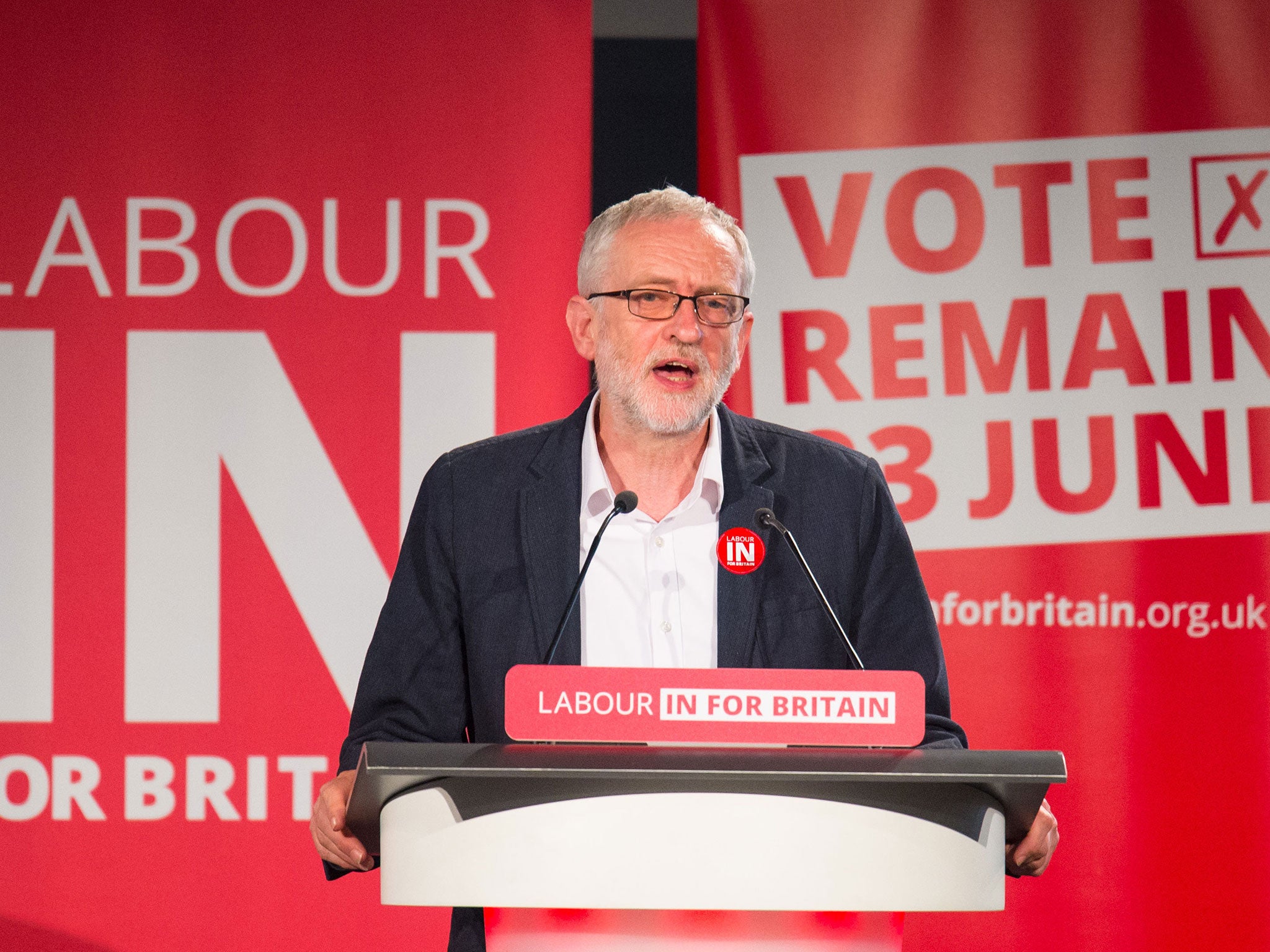If the Austrian election results tell us anything, then Corbyn is on the road to success in 2020
As the Brexit debate rages, a positive stance on immigration could give Corbyn his Van der Bellen moment

Watching the Austrian elections unfurl on Monday felt like being given a sneak preview of the EU referendum result night. The independent left-wing candidate Alexander Van der Bellen beat right-wing Norbert Hofer, taking 50.3 per cent of the vote.
In a month’s time, we too will be nervously clicking refresh on news websites as the final postal votes are counted to reveal an uncomfortably narrow margin in an election that, just like in Austria, hangs in the balance over whether we stand against, or in support of, inward migration. I get sweat-inducingly anxious just thinking about it.
Van der Bellen, the new Austrian President, won on a pro-immigration ticket while his opponent had threatened to use his presidential prerogative to dissolve the government if it failed to act on immigration.
Similarly, and for all the conversations about red tape and agricultural subsidies, the Brexit debate is one about the free movement of people within the EU: a vote to remain is a vote for internationalism; a vote to leave, a ballot in favour of national chauvinism. As with Austria, the ideological lines in the sand are clear.
Though his position on the EU may have changed over the years, Labour leader Jeremy Corbyn has always been staunchly pro-immigration, for humanitarian, social and economic reasons. His critics fear that his liberal stance is driving away voters in his party’s working-class heartlands, ignoring their concerns about the movement of labour and pushing them into the arms of anti-immigration parties such as Ukip. Perhaps there is something that Corbyn’s Labour could learn from Van der Bellen.
Under Ed Miliband, Labour flip-flopped on the issue of immigration leading eventually to those “controls on immigration” mugs and a promise to deal with people’s concerns and offering concrete plans on people coming to the UK. Labour also lost that election in 2015.
The incoming Austrian President took a clear stance on immigration during his election campaign: he stressed the social responsibility of his nation to integrate its existing 90,000 refugees. He won that election.
Taking a firm pro-migration stance could give Corbyn his Van der Bellen moment. If he stands his ground in 2020 and offers a message that acknowledges but tackles racist and xenophobic sentiment – while also facing up to the economic concerns that have led migrants to be scapegoated in Britain – then he may be onto something.
The key for Corbyn is to address the myths surrounding immigration and to change the narrative it inspires. Worried about your housing situation? That’s not because your Polish neighbours are stealing all the social housing, it’s down to a lack of investment in local authority housing stock. Don’t know who your neighbours are? If we had security of employment and income, perhaps they wouldn’t be forced to move area every year to find work.
Both immigrants and blue-collar workers are disproportionately affected by the relocation of production, cheap labour markets, wage stagnation, precarious or short-term employment, housing shortages and poorly-funded public services.
If Britain remains in the EU, Labour will be able to ride the wave of cheery internationalism and push that message forward. But if we leave, and the dire IMF and Bank of England warnings of an economic slump come to pass, there will be plenty of disgruntled voters out there to bring on side.
Labour may have already lost a few supporters who will never accept migration is socially and economically healthy for Britain. But there are others who simply want to understand the forces that impact on their lives and to hear that something can be done about it. Here’s where Corbyn has his chance – but he must act now if he wants to take it.
Join our commenting forum
Join thought-provoking conversations, follow other Independent readers and see their replies
Comments
Bookmark popover
Removed from bookmarks